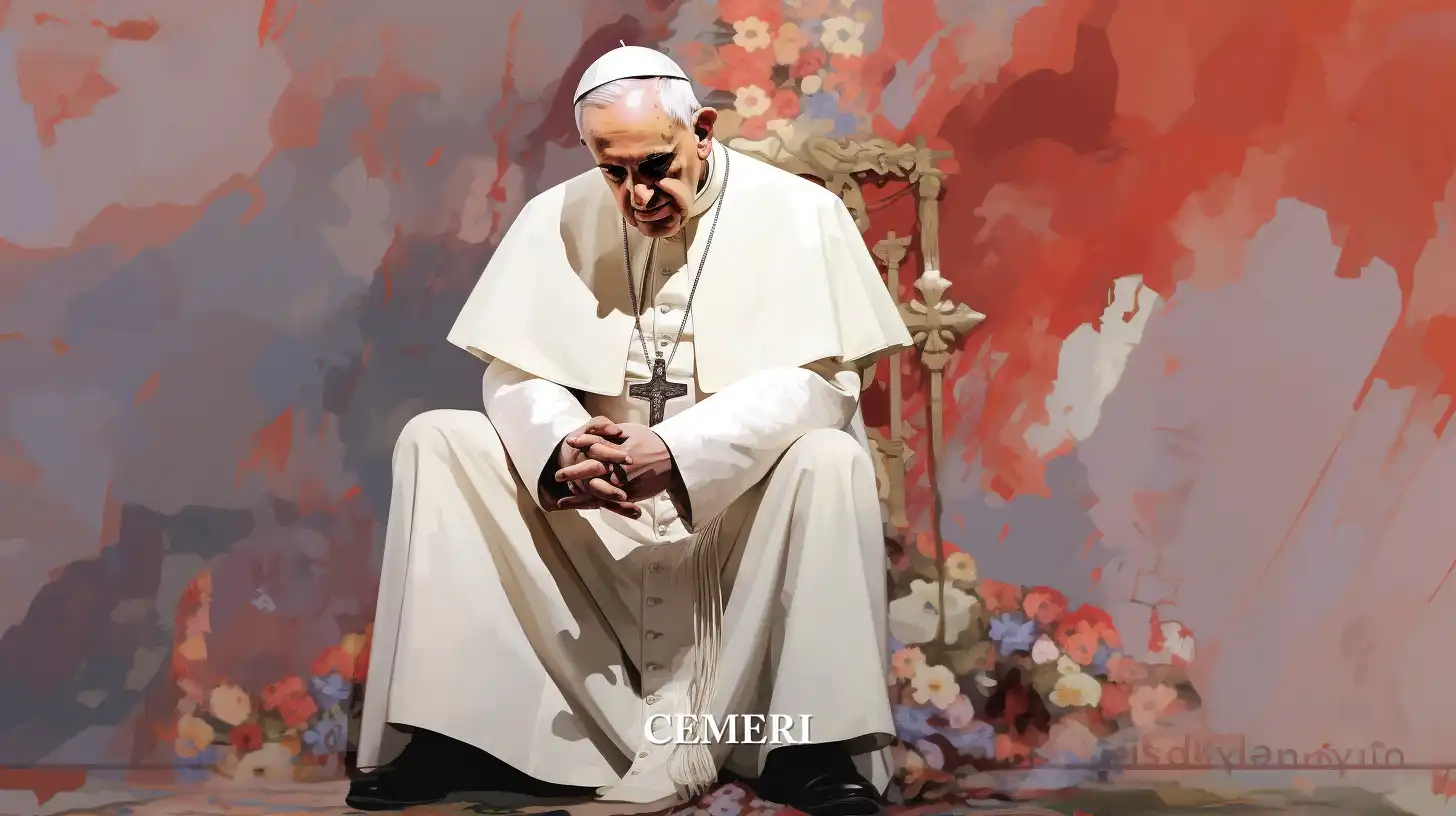Opinion
Paulina Villegas
Article 23: Hong Kong's controversial national security law
- What is Article 23 about? Hong Kong's new national security law.

With 88 votes in favor, last Tuesday, March 19, a new national security law was unanimously approved in Hong Kong, the controversial Article 23, a law that seeks to punish the crimes of treason, insurrection, espionage, interference from external countries , state secrets and national sedition.
The application of Article 23 will give full power to the government of semi-autonomous Hong Kong, as well as accessibility of control to China, an argument that solidifies the protectionist interests of the Asian Giant over its protectorates, but that threatens Hong Kong's national democracy.
The approval of the law establishes that as of this Saturday, March 23, it will be implemented in the country, however, despite having great acceptance by the chamber of legislators, it is a law that has received criticism and rejection by a large part of the population, especially by activists, foreign countries and other actors in the international community.
Hong Kong: one country, two systems
Hong Kong, currently a protectorate administered by the People's Republic of China, in the past was a former British colony until 1997 when it was returned to the Chinese, with the condition that the country enjoyed legal and legislative autonomy with a temporary period of 50 years.
This agreement greatly favored the economic growth of Hong Kong, which became one of the global centers in the business world and with one of the most valued stock exchanges in the system. The above has in turn allowed it to be one of the protectorates with greater autonomy and enjoyment of freedoms in China in contrast to Macau, and it is even a territory whose freedom of expression, despite having been conditioned, is less limited in comparison with that of China itself.
However, said autonomy and freedoms violate the interests of the Asian Giant, thus turning Hong Kong into a center of instability that threatens the Chinese order. For years, the Hong Kong population, motivated by a feeling of greater freedom, has demanded greater autonomy from China. As a consequence, Beijing was motivated to impose a security law in 2020 which resumed some elements of Article 23, such as the criminalization of session, terrorism, subversion and collusion by foreign forces.
The Hong Kong National Security Law (NSL), like the current one, gave China, through the Communist Party, broad ability to repress a variety of political crimes and impose severe punishments ranging from years in prison to imprisonment for life, depending on the severity of the crime. This precedent has greatly reduced the rule of law in the Hong Kong region, promoting waves of young migrant scholars and activists who have fled since then, motivated by a fear of possible punishments from this harsh law. Now, with its reinforcement through adaptation and updating with Article 23, the Human Rights of the population are much more violated.
Repression of Human Rights, a draconian law
The current law, Article 23, takes up the foundations of the NSL. This is an adaptation that goes beyond content censorship and control over espionage. The new law, which adds 39 crimes as a threat to national security, is presumed to be necessary to fill the legal loopholes that Hong Kong has in its jurisdiction, however, it is a much more severe mechanism, to the point of being categorized as a draconian law and criticized especially by international and non-governmental organizations.
Decline of democracy, deprivation of free will, violation of the right to freedom of expression, promotion of repression, fragility of the rights of reporters and journalists, are some of the rights that are most violated.
In addition to this, the detention protocols for suspected individuals are affected, which have gone from 48 hours to up to 16 days and, finally, according to reports from Al Jazeera, this new law also applies to actions that take place outside of Hong Kong as long as they are acts committed by residents and/or businessmen, who have been described on various occasions as “Anti-China” elements.
A response to Western espionage
The law was born in response to curbing threats to national security, one of the main objectives that Hong Kong has sought under the influence of China for years. The recent tensions between China and the United States, as well as the implementation of plans to strengthen their national security precepts, have led both countries to strengthen their international security mechanisms, under the constant feeling of uncertainty that persists in the arena international.
Through this argument, Hong Kong adopts in its speech the concern and need to build a national defense, hand in hand with strengthening the protection of international affairs and its national diplomacy against other foreign States.
The United States has been one of the opponents of this new law, arguing from its State Department that the over-protectionism promoted by Article 23 would negatively impact the closure of an open society and economy for which Hong Kong has worked so hard in recent years, in turn, highlighting the damage it would mean for American interests in the region, in commercial terms.
Hong Kong sees a victory in the application of this new law, which despite putting the human rights of its population at risk, turns out to be an effective mechanism in case of suspicion of foreign interventionism at the hands of espionage, and as a consequence , perceives Hong Kong's national security with a much more competent and strengthened national security system.
However, despite being based on the argument of strengthening national security and ordering the country's legal loopholes, Article 23 proves to be a measure that serves Chinese interests and mitigates the feeling of seeking the autonomy of a Hong Kong, which has always leaned more towards consolidating a democracy.
Sources
1. Al Jazeera. (2024, 19 de marzo). What is Article 23, Hong Kong’s new draconian national security law? https://www.aljazeera.com/news/2024/3/19/what-is-article-23-hong-kongs-new-draconian-national-security-law
2. Amnesty International. (2024, 19 de marzo). Hong Kong: Passing of Article 23 law a devastating moment for human rights. https://www.amnesty.org/en/latest/news/2024/03/hong-kong-passing-of-article-23-law-a-devastating-moment-for-human-rights/
3. González Delgadillo, D. (2024, 19 de marzo). Aprueba Hong Kong nueva ley de seguridad nacional. La Jornada. https://www.jornada.com.mx/noticia/2024/03/19/mundo/aprueba-hong-kong-polemica-ley-de-seguridad-nacional-643
4. Hernández, J. C. (2020, 1 de julio). ¿En qué consiste la nueva ley de seguridad de Hong Kong? (Published 2020). The New York Times. https://www.nytimes.com/es/2020/07/01/espanol/mundo/china-ley-seguridad-Hong-Kong.html
5. Lau, C. (2024, 19 de marzo). Hong Kong passes second national security law, widening crackdown powers and aligning city more closely with mainland China | CNN. CNN. https://edition.cnn.com/2024/03/19/china/hong-kong-second-national-security-law-passed-intl-hnk/index.html
6. Reiss, S. (2023, 13 de julio). Tres años de la Ley de Seguridad Nacional en Hong Kong: ¿adiós al ‘estatus especial’? | Política Exterior. Política Exterior. https://www.politicaexterior.com/hong-kong-ley-seguridad-nacional/
7. Swissinfo. (2024, 20 de marzo). China fustiga críticas a la nueva ley de seguridad nacional de Hong Kong. https://www.swissinfo.ch/spa/china-fustiga-críticas-a-la-nueva-ley-de-seguridad-nacional-de-hong-kong/73955982

